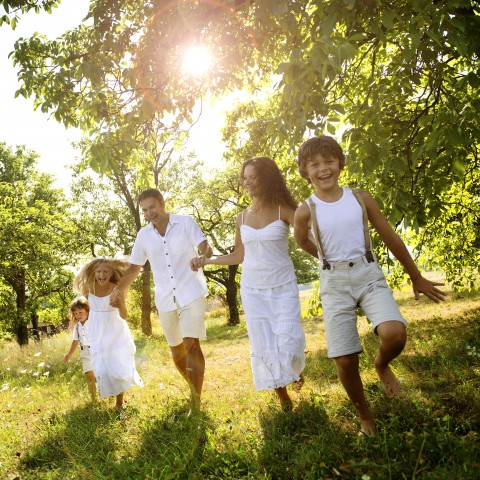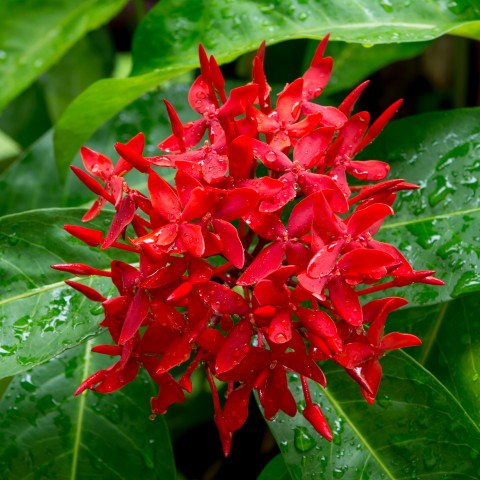
Verbs are the meat and potatoes of language. They’re in every sentence, and pretty much every fragment too.
If you’re putting together a dinner plate of communication, the verb is the main course.
For that reason, we’ve put together a massive list of 100 Arabic verbs that cover pretty much anything anyone could ask for, including some examples that show how Arabic verbs work.
Read this list through and watch as you slowly absorb verbs in Arabic and their structures without even having to work at it!
Let’s go!
 Table of Contents
Table of Contents
- The Basic Tourist Set—The 20 Most Important Verbs
- Abstract Yet Important
- Interacting with Others
- Move Your Body
- Follow That Car!
- Hobbies and Pastimes
- Using Your Words
- In the Kitchen
- Conclusion
1. The Basic Tourist Set—The 20 Most Important Verbs

Step right up and take your pick. These are the key Arabic verbs you need when you’re traveling in an Arabic-speaking country—they’ll get you where you need to go, and even let you make small talk on the way.
اِلتَقَطَ صورَة (iltaqaṭa ṣūrah) — take a photo
هَل يُمكِنُني أَن أَلتَقِط صورَة لَك؟
hal yumkinunī ʾan ʾaltaqiṭ ṣūrah lak?
Can I take a photo of you?
مَشَيَ (mašaya) — walk
أُريدُ أَن أَمشي إلى الفُندُق.
ʾurīdu ʾan ʾamšī ʾilā al-funduq.
I want to walk to the hotel.
أَقامَ (ʾaqāma) — stay overnight
سَأُقيمُ في الفُندُق الَّذي بِجانِب النَهر.
saʾuqīmu fī al-funduq allaḏī biǧānib al-nahr.
I’m staying at a hotel near the river.
أَكَلَ (ʾakala) — eat
أُريدُ أَن آكُلَ الأَكل المَحَلّي.
ʾurīdu ʾan ʾākula al-ʾakl al-maḥallī.
I want to eat local food.
شَرِبَ (šariba) — drink
أَنا لا أَشرَبُ الخَمر.
ʾanā lā ʾašrabu al-ḫamr.
I don’t drink alcohol.
ذَهَبَ (ḏahaba) — go
إلى أَيْنَ يُمكِنُنا الذَهاب؟
ʾilā ʾayna yumkinunā al-ḏahāb?
When can we go?
اِشتَرى (ištarā) — buy
أَيْنَ يُمكِنُني شِراء فُرشاةِ أَسنان؟
ʾayna yumkinunī širāʾ furšāẗi ʾasnān?
Where can I buy a toothbrush?
نَظَرَ (naẓara) — look
اِنظُر إلى ذاك الرَجُل!
inẓur ʾilā ḏāk al-raǧul!
Look at that man!
وَجَدَ (waǧada) — find
لَم أَجِد مُفتاح غُرفَتي.
lam ʾaǧid muftāḥ ġurfatī.
I can’t find my room key.
غادَرَ (ġādara) — leave
سَنُغادِرُ غَداً.
sanuġādiru ġadan.
We’re going to leave tomorrow.
وَصَل (waṣal) — arrive
مَتى يَصِل باص القاهِرَة؟
matā yaṣil bāṣ al-qāhirah?
What time does the bus to Cairo arrive?
تَحَدَّث (taḥaddaṯ) — speak
يُمكِنُني تَحَدُّث القَليل مِن العَرَبِيَّة و القَليل مِن الفِرِنسِيَّة.
yumkinunī taḥadduṯ al-qalīl min al-ʿarabiyyah wa al-qalīl min al-firinsiyyah.
I can speak a little Arabic and a little French.
قالَ (qala) — say
كَيْفَ تَقول هَذا بِالعَرَبِيَّة؟
kayfa taqūl haḏā bilʿarabiyyah?
How do you say this in Arabic?
قَرَأَ (qaraʾa) — read
هَل تُجيدُ أَن تَقرَأَ الإنجليزِيَّة؟
hal tuǧīdu ʾan taqraʾa al-ʾinǧlīziyyah?
Do you know how to read English?
نَطَقَ (naṭaqa) — pronounce
لا يُمكِنُني نُطق هَذِهِ الكَلِمَة.
lā yumkinunī nuṭq haḏihi al-kalimah.
I can’t pronounce this word.
اِستَخدَمَ الحَمّام (istaḫdama al-ḥammām) — use the bathroom
أَحتاجُ أَن أَستَخدِم الحَمّام.
ʾaḥtāǧu ʾan ʾastaḫdim al-ḥammām.
I need to use the bathroom.
سَبَحَ (sabaḥa) — swim
أُريدُ أَن أَسبَحَ في المُحيط.
ʾurīdu ʾan ʾasbaḥa fī al-muḥīṭ.
I want to swim in the ocean.
رَكِبَ دَرّاجَة (rakiba darrāǧah) — ride a bike
هَل يُمكِنُكَ رُكوب دَرّاجَة في المَدينَة؟
hal yumkinuka rukūb darrāǧah fī al-madīnah?
Can you ride a bike in the city?
2. Abstract Yet Important

Here’s a short Arabic verbs list of words that are more abstract, but that you should know nonetheless.
أَحَبَّ (ʾaḥabba) — love
أُحِبُّ زَوْجَتي.
ʾuḥibbu zawǧatī.
I love my wife.
ّفَكَّرَ ّ((fakkara) — think
بِما تُفَكِّر؟
bimā tufakkir?
What are you thinking about?
أَصَرَّ (ʾaṣarra) — persist
لَقَد أَصَرّوا عَلى أَن يَتَجادَلوا حَوْلَ الأَشيَاء البَسيطَة.
laqad ʾaṣarrū ʿalā ʾan yataǧādalū ḥawla al-ʾašyaʾ al-basīṭah.
They persisted in arguing about tiny things.
وَضَعَ (waḍaʿa) — put
ضَع القَلَم عَلى الطاوِلَة.
ḍaʿ al-qalam ʿalā al-ṭāwilah.
Put the pen on the table.
جَرَّبَ (ǧarraba) — try
خُذ، جَرِّب هَذا الشاي.
ḫuḏ, ǧarrib haḏā al-šāī.
Take, try this tea.
فَعَلَ (faʿala) — do
يُمكِنُهُ دائِماً أَن يَفعَل الصَوَاب.
yumkinuhu dāʾiman ʾan yafʿal al-ṣawab.
He can always do the right thing.
صَنَعَ (ṣanaʿa) — make
لَيْسَ مِن الصَعب أَن تَصنَع سَندَويتش.
laysa min al-ṣaʿb ʾan taṣnaʿ sandaūītš.
It’s not hard to make a sandwich.
أَحَسَّ (ʾaḥassa) — feel
أَحَسَّ بِالمَرَض
ʾaḥassa bilmaraḍ
I feel sick.
فَهِمَ (fahima) — understand
يُمكِنُني أَن أَفهَم إن تَحَدَّثتَ بِبُطء.
yumkinunī ʾan ʾafham ʾin taḥaddaṯta bibuṭʾ.
I can understand if you speak slowly.
اِتَّفَق (ittafaq) — agree
هَل تَتَّفِق مَعي؟
hal tattafiq maʿī?
Do you agree with me?
3. Interacting with Others

These are super-useful Arabic verbs for beginners. It’s a bit of a strange name for a category, sure, but whether you’re doing business or hanging out with friends, these verbs are the ones that will come up again and again.
أَعطى (ʾaʿṭā) — give
اِعطِني تِلكَ القارورَة.
iʿṭinī tilka al-qārūrah.
Give me that bottle.
أَخَذَ (ʾaḫaḏa) — take
هَل يُمكِنُكَ أَن تَأخُذَ هَذا إلى الطابِق العُلوِي؟
hal yumkinuka ʾan taʾḫuḏa haḏā ʾilā al-ṭābiq al-ʿulwi?
Can you take this upstairs?
أَحضَرَ (ʾaḥḍara) — bring
أَحضَرَ أَحذِيَتي.
ʾaḥḍara ʾaḥḏiyatī.
Bring me my shoes.
ساعِد (sāʿid) — help
مِن فَضلِك ساعِد إبني في وَاجِباتِه المَنزِلِيَّة.
min faḍlik sāʿid ʾibnī fī waǧibātih al-manziliyyah.
Please help my son with his homework.
صَلّى (ṣallā) — pray
فَلنَذهَب لِنُصَلّي مَعاً.
falnaḏhab linuṣallī maʿan.
Let’s go pray together.
عَمِلَ (ʿamila) — work
لا يُمكِنُني أَن أَعمَلَ مَع الآخَرين.
lā yumkinunī ʾan ʾaʿmala maʿ al-ʾāḫarīn.
I can’t work with other people.
بَحَثَ (baḥaṯa) — look for
أَنا أَبَحَثُ عَن المُدير.
ʾanā ʾabaḥaṯu ʿan al-mudīr.
I’m looking for my boss.
أَنصَتَ (ʾanṣata) — listen to
هَل تُنصِتُ إلَيّ؟
hal tunṣitu ʾilayy?
Are you listening to me?
وَعَدَ (waʿada) — promise
أَعِدُكَ أَنّني لَن أَقومَ بِذَلِك مُجَدَّداً.
ʾaʿiduka ʾannnī lan ʾaqūma biḏalik muǧaddadan.
I promise (directed to a male) I won’t do it again.
وَظَّفَ (waẓẓafa) — hire
و أَخيراً, جوجِل وَظَّقَتني.
wa ʾaḫīran, ǧūǧil waẓẓaqatnī.
Finally, Google hired me.
4. Move Your Body

Are you a kid at heart or traveling with little ones? These are the Arabic action verbs you’re looking for. You’d be surprised how useful a lot of these are, even if it seems like you’re in a kindergarten class!
قَفَزَ (qafaza) — jump
يَجِبُ عَلَيْكَ أَن تَقفِزَ فَوْقَ البَرَكَة.
yaǧibu ʿalayka ʾan taqfiza fawqa al-barakah.
You have to jump over the puddle.
جَرَى (ǧaraā) — run
بِأَيِّ سُرعَة يُمكِنُكَ أَن تَجري؟
biʾayyi surʿah yumkinuka ʾan taǧrī?
How fast can you run?
اِستَلقى (istalqā) — lie down
أَنا أُريدُ فَقَط أَن أَعودَ إلى المَنزِل و أَستَلقي.
ʾanā ʾurīdu faqaṭ ʾan ʾaʿūda ʾilā al-manzil wa ʾastalqī.
I just want to go home and lie down.
وَقَفَ (waqafa) — stand up
فَليَقِف الجَميع مِن فَضلِكُم.
falyaqif al-ǧamīʿ min faḍlikum.
Everybody stand up, please.
جَلَس (ǧalas) — sit down
ظَهري يُؤلِمُني حينَما أَجلِس.
ẓahrī yuʾulimunī ḥīnamā ʾaǧlis.
My back hurts when I sit down.
صَفَّقَ (ṣaffaqa) — clap
الجُمهور صَفَّقَ لِمُدَّةٍ طَوِيلَة.
al-ǧumhūr ṣaffaqa limuddaẗin ṭawilah.
The audience clapped for a long time.
تَمَرَّنَ (tamarrana) — exercise
لا أُحِبُّ التَمَرُّن حين أَكونُ مَريضاً.
lā ʾuḥibbu al-tamarrun ḥīn ʾakūnu marīḍan.
I don’t like to exercise when I’m sick.
مارَسَ الرِيَاضَة (mārasa al-riyaḍah) — play sports
لَقَد تَعَوَّدتُ أَن أُمارِسَ الكَثير مِن الرِيَاضَة عِندَما كُنتُ صَغيراً.
laqad taʿawwadtu ʾan ʾumārisa al-kaṯīr min al-riyaḍah ʿindamā kuntu ṣaġīran.
I used to play a lot of sports when I was young.
رَقَصَ (raqaṣa) — dance
فَلنَرقُص اللَّيْلَة كُلَّها.
falnarquṣ al-llaylah kullahā.
Let’s dance all night.
أَخَذَ حَمّاماً (ʾaḫaḏa ḥammāman) — take a shower
أُريدُ أَن آخُذَ حَمّاماً غَداً صَباحاً.
ʾurīdu ʾan ʾāḫuḏa ḥammāman ġadan ṣabāḥan.
I want to take a shower tomorrow morning.
5. Follow That Car!
In this section, we’ll learn all the verbs you need for driving in Arabic, as well as some handy phrases you can use when somebody is driving you around.
قادَ (qāda) — drive
يُمكِنُني أَن أَقودَ أَيَّ نَوْعٍ مِن السَيَّارات.
yumkinunī ʾan ʾaqūda ʾayya nawʿin min al-sayyaārāt.
I can drive any kind of car.
قِف (qif) — stop
أَوْقِف السَيَّارَة، مِن فَضلِك.
ʾawqif al-sayyaārah, min faḍlik.
Stop the car, please!
اِنعَطَفَ (inʿaṭafa) — turn
اِنعَطِف يَساراً، ثُمَّ اِنعَطِف يَميناً عِندَ الشارِع المُقبِل.
inʿaṭif yasāran, ṯumma inʿaṭif yamīnan ʿinda al-šāriʿ al-muqbil.
Turn left, and then turn right at the next street.
أَسرَعَ (ʾasraʿa) — speed up
سَيَّارَةُ الشُرطَة أَسرَعَت لِكَيّ تَقبِضَ عَلى المُتَّهَم.
sayyaāraẗu al-šurṭah ʾasraʿat likayy taqbiḍa ʿalā al-muttaham.
The police car sped up to catch the suspect.
أَبطَأَ (ʾabṭaʾa) — slow down
هَل يُمكِنُكَ أَن تُبطِئَ مِن فَضلِك؟
hal yumkinuka ʾan tubṭiʾa min faḍlik?
Can you please slow down?
عَمِل (ʿamil) — turn on / start
سيارتي لا تَعمَل.
sīārtī lā taʿmal.
My car won’t start.
أَطفَأَ (ʾaṭfaʾa) — turn off
هَل يُمكِنُكَ إطفاء المُكَيِّف الهَوَائي؟
hal yumkinuka ʾiṭfāʾ al-mukayyif al-hawaʾī?
Could you turn off the air conditioning?
رَكِبَ الحافِلَة (rakiba al-ḥāfilah) — catch a bus
.ِ إذا كُنتَ عَلى عَجَلَة، يُمكِنُكَ رُكوب الحافِلَة
ʾiḏā kunta ʿalā ʿaǧalah, yumkinuka rukūb al-ḥāfilah.
If you hurry, you can catch the bus.
6. Hobbies and Pastimes

What do you like to do (besides learning Arabic, of course)? I bet you’ll find it on this list of hobby-related Arabic language verbs.
اِلتَقَطَ صُوَراً (iltaqaṭa ṣuwaran) — take photos
.أُحِبُّ إلتِقاطَ صُوَر لِلطَبيعَة
ʾuḥibbu ʾiltiqāṭa ṣuwar lilṭabīʿah.
I like to take photos of nature.
تَستَمِعُ إلى الموسيقى (tastamiʿu ʾilā al-mūsīqā) — listen to music
أُمّي تَستَمِعُ إلى الموسيقى الأَفريقِيَّة.
ʾummī tastamiʿu ʾilā al-mūsīqā al-ʾafrīqiyyah.
My mom listens to African music.
عَزَفَ عَلى الجيتار (ʿazafa ʿalā al-ǧītār) — play guitar
أَنا أَعزُفُ عَلى الجيتار مُنذُ عَشَرَ سَنَوَات.
ʾanā ʾaʿzufu ʿalā al-ǧītār munḏu ʿašara sanawat.
I’ve been playing guitar for ten years.
رَكَضَ (rakaḍa) — go jogging
هَل تُريدُ أَن تَركُضَ مَعي عِندَما يَتَحَسَّن الطَقس؟
hal turīdu ʾan tarkuḍa maʿī ʿindamā yataḥassan al-ṭaqs?
Want to go jogging with me when the weather is nicer?
شاهَدَ الأَفلام (šāhada al-ʾaflām) — watch movies
أَكرَهُ مُشاهَدَةِ الأَفلام الحَزينَة.
ʾakrahu mušāhadaẗi al-ʾaflām al-ḥazīnah.
I hate watching sad movies.
اِستَرخى (istarḫā) — relax
مِن المُهِمِّ أَن تَستَرخِيَ بَعد العَمَل بِجِد.
min al-muhimmi ʾan tastarḫiya baʿd al-ʿamal biǧid.
It’s important to relax after working hard.
أَخَذَ غَفوَة (ʾaḫaḏa ġafwah) — take a nap
هَل مِن المُمكِنِ أَن آخُذَ غَفوَة في السَيّارَة؟
hal min al-mumkini ʾan ʾāḫuḏa ġafwah fī al-sayyārah?
Is it okay to take a nap in the car?
مارَسَ اليوغا (mārasa al-yūġā) — do yoga
عادَةً ما أُمارِس اليوغا كُلَّ يَوْم أَحَد.
ʿādaẗan mā ʾumāris al-īūġā kulla yūm ʾaḥad.
I usually do yoga every Sunday.
دَرَسَ (darasa) — study
هَل يُمكِنُنا أَن نَدرُسَ مَعاً؟
hal yumkinunā ʾan nadrusa maʿan?
Can we study together?
7. Using Your Words

As a language learner, you’re probably dialed in to communication in a general sense. These verbs help you talk about that communication, and help you describe how others are communicating around you.
دَردَشَ (dardaša) — chat
إنَّهُما يُدَردِشان حَوْل السَيَّارات.
ʾinnahumā yudardišān ḥawl al-sayyaārāt.
They’re chatting about cars.
تَجادَل (taǧādal) — argue
هَل عادَةً ما تَتَجادَل مَع وَالِدَيْك؟
hal ʿādaẗan mā tataǧādal maʿ walidayk?
Do you often argue with your parents?
أَهان (ʾahān) — insult
لَقَد أَهانَتني أَمامَ زَوْجي!
laqad ʾahānatnī ʾamāma zawǧī!
She insulted me in front of my husband!
8. In the Kitchen

Cuisine across the Arab world is as diverse as it is delicious. Ideally, you’ll get a chance to not only sample this cuisine yourself, but also to cook it for others!
طَبَخَ (ṭabaḫa) — cook
أَطبُخ الغَداء لِعائِلَتي مَرَّة في الأُسبوع.
ʾaṭbuḫ al-ġadāʾ liʿāʾilatī marrah fī al-ʾusbūʿ.
I cook lunch for my family once a week.
رَمى (ramā) — throw away
هَل يُمكِنُكَ أَن تَرمي ذَلِكَ البَيْض؟
hal yumkinuka ʾan tarmī ḏalika al-bayḍ?
Can you throw away those eggs?
نَظَّفَ (naẓẓafa) — clean
نَحنُ بِحاجَةٍ إلى تَنظيف هَذا المَطبَخ.
naḥnu biḥāǧaẗin ʾilā tanẓīf haḏā al-maṭbaḫ.
We need to clean this kitchen.
مَسَحَ (masaḥa) — mop
حاوِل أَن تَمسَح الأَرضِيَّة بِسُرعَة.
ḥāwil ʾan tamsaḥ al-ʾarḍiyyah bisurʿah.
Try to mop the floors fast.
مَسَحَ (masaḥa) — wipe
إمسَح الطاوِلَة بِمِنشَفَة.
ʾimsaḥ al-ṭāwilah biminšafah.
Wipe the table with a towel.
غَسَلَ (ġasala) — wash
فَلنَغسِل الأَوَاني مَعاً.
falnaġsil al-ʾawanī maʿan.
Let’s wash the dishes together.
قَطَّعَ (qaṭṭaʿa) — cut
قَطَّعَ اللَحم إلى قِطَع صَغيرَة.
qaṭṭaʿa al-laḥm ʾilā qiṭaʿ ṣaġīrah.
Cut the meat into small pieces.
قَلى (qalā) — fry
اِقلي الدَجاج لِمُدَّةِ حَوَالي خَمس دَقائِق.
iqlī al-daǧāǧ limuddaẗi ḥawalī ḫams daqāʾiq.
Fry the chicken for about five minutes.
غَلى (ġalā) — boil
اِغلي المِيَاه و أَضِف المَعكَرونَة.
iġlī al-miyah wa ʾaḍif al-maʿkarūnah.
Boil the water and add the noodles.
9. Conclusion
Whew! What a list!
Arabic verbs do have some interesting grammar points about them, but as you can see, you can already pick up quite a bit just from reading all of these examples.
Simply reading and listening to a language is one of the best ways to acquire a really great feel for how it looks and sounds, and after enough of that, you’ll have an intrinsic sense for grammar.
ArabicPod101 just so happens to offer a huge amount of text and audio content precisely for that reason! On the same note, be sure to keep watching for our upcoming article on Arabic verb conjugation.
Before you go, let us know in the comments how you feel about Arabic verbs now. Are there any you still want to know, or grammar points you’re not quite clear on? We look forward to hearing from you.
Happy Arabic learning!










